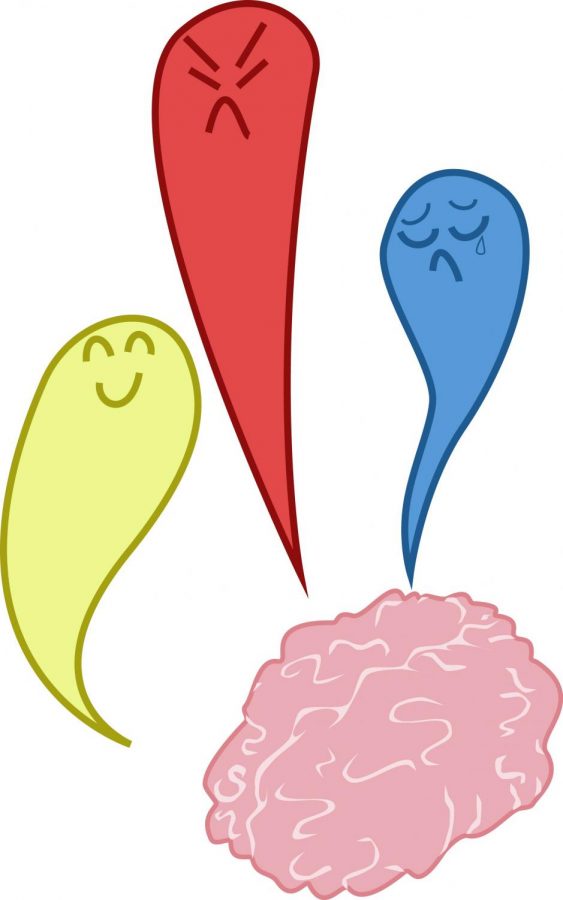Blood markers hint at depression
Blood markers hint at depression
September 29, 2014
At least 10 percent of people in the U.S. will experience major depressive disorders at some point in their lives, with twice as many women affected as men.
Researchers from Northwestern University have identified nine RNA blood markers present in individuals diagnosed with MDDs—a biological measurement that has potential to point the way to an accurate and objective diagnostic tool for major depressive disorders—something that does not currently exist. According to the World Health Organization, MDDs are the leading cause of disability worldwide.
“The current diagnostic tests [for depression] are subjective,” said Eva Redei, lead author of the study and professor of psychiatry and behavioral sciences at Northwestern University’s Feinberg School of Medicine. “There are patient-based questionnaires put together by psychiatrists, but that’s how patients are diagnosed.”
Measurements were taken from study participants before and after 18 weeks of cognitive-behavioral therapy, a form of treatment that focuses on examining the relationships between thoughts, feelings and behaviors by exploring negative patterns of thinking.
Initially, blood levels for the nine markers differed significantly among participants with MDDs and those in the control group. But after the cognitive-behavioral therapy, six of the blood markers in the participants with depressive disorders changed to match those of the control group.
According to the Sept. 16 study, published in the journal Translational Psychiatry, the severity of self-reported depression symptoms may be understated in comparison to those symptoms diagnosed by clinicians because depressed patients frequently characterize symptoms inadequately. The study said the longer the diagnostic delay, which can last 2–40 months, the more difficult it is to treat depression.
Redei said in the past, researchers have explored the possibility of developing blood-based tests for diagnosing depression, but so far, none have been successful.
“That’s the million dollar question,” said Shawn McClintock, a Ph. D. and associate professor in psychiatry and behavioral sciences at the Duke University School of Medicine. “That’s something science is really trying to understand right now.”
According to McClintock, researchers in the field of depression study are using a variety of methods to try to develop a biological measurement of symptoms of MDD. Researchers look at cognitive abilities such as memory function, attention function and processing speed that are associated with mood changes.
McClintock said many people do not get regular screenings for depression, and the National Institutes of Mental Health highlight the need for general physicians to start the conversation with their patients about being aware of the state of their moods and promoting better mental health self-care.
“At your local drug store, there’s a blood pressure screening and a lot of people know they need to get their blood pressure checked,” McClintock said. “But when focusing on depression or mood, there can be a bit of a negative association with it. People may be self-conscious and hesitant to admit that there might be a problem.”
Redei said while her team did see changes in the levels of some RNA blood markers after successful cognitive-behavioral therapy, not every patient will respond to every kind of treatment. However, this research could provide a platform for making better recommendations for individualized therapies—placing further emphasis on the need for an objective way to measure depression.
“This is a biological measure for the efficacy of what everybody considers completely non-biological treatment,” she said. “It’s an absolute victory for psychotherapy and cognitive behavioral therapy.”
According to Adrienne Martino, a behavioral health therapist and domestic violence counselor, combating symptoms of depression can require lifelong treatment.
“It’s something that most people, unless medicated and seeking a psychiatrist, will struggle with like an addiction throughout their entire lives,” Martino said.
A diagnosis of major depression can be based on a variety of signs and symptoms of anxiety, Martino said. Losing a job, going through a divorce or the loss of a loved one can result in the psychological ailments for which researchers currently lack an objective measure.
“It would be extremely beneficial for younger and college-age adolescents to realize there is clear biology behind depression,” Redei said. “There is no need to feel stigmatized. Sooner or later there will be a simple blood test that—just like a blood test for glucose or anything else—will help not only clinicians to diagnose depression, but the patients who suffer from it.”








